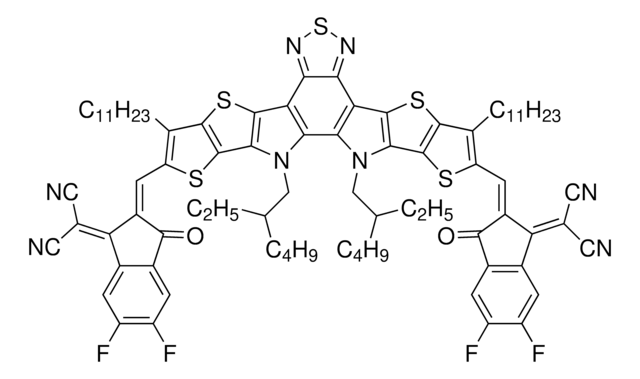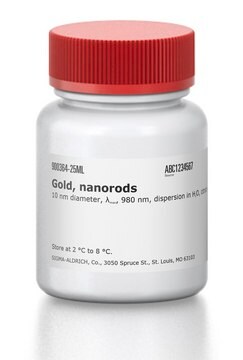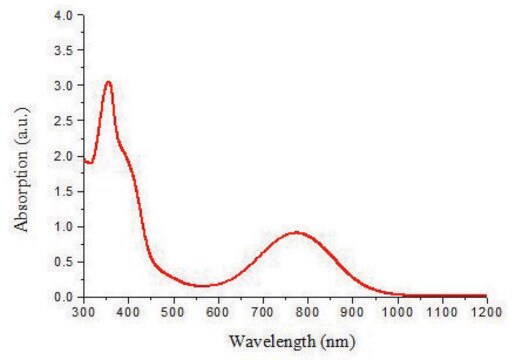906824
BT-CIC
≥98%
Sinónimos:
4,4,10,10-tetrakis(4-hexylphenyl)-5,11-(2-ethylhexyloxy)-4,10-dihydrodithienyl[1,2-b:4,5b′ ]benzodithiophene-2,8-diyl)bis(2-(3-oxo-2,3-dihydroinden-5,6-dichloro-1-ylidene)malononitrile), NFA147, PCE147
About This Item
Productos recomendados
description
Band gap: 1.4 eV
Solubility:CB and ODCB
assay
≥98%
form
solid
solubility
chloroform: soluble
orbital energy
HOMO -5.5 eV
LUMO -4.1 eV
Application
A recently reported tandem cell, employing BT-CIC as the non-fullerene acceptor and PCE-10 as donor for the back cell showed an PCE of 15%.
Device performance:
Tandem [Front] (170 nm DTDCPB:C70 + ARC) [Back]PCE-10:BTCIC (1:1.5, 75 nm)
Jsc=13.3 ± 0.3 mA/cm2
Voc=1.59 ± 0.01 V
FF=0.71± 0.01
PCE=15.0% ± 0.3%
ARC:an antireflection coating
Storage Class
11 - Combustible Solids
wgk_germany
WGK 3
flash_point_f
Not applicable
flash_point_c
Not applicable
Elija entre una de las versiones más recientes:
Certificados de análisis (COA)
Lo sentimos, en este momento no disponemos de COAs para este producto en línea.
Si necesita más asistencia, póngase en contacto con Atención al cliente
¿Ya tiene este producto?
Encuentre la documentación para los productos que ha comprado recientemente en la Biblioteca de documentos.
Los clientes también vieron
Artículos
The emerging organic photovoltaic (OPV) technology is very promising for low-cost solar energy production. OPV devices can be produced using high-throughput, large-volume printing methods on lightweight and flexible plastic substrates, making them easy to deploy and use in innovative ways.
The emerging organic photovoltaic (OPV) technology is very promising for low-cost solar energy production.
Professor Chen (Nankai University, China) and his team explain the strategies behind their recent record-breaking organic solar cells, reaching a power conversion efficiency of 17.3%.
Nuestro equipo de científicos tiene experiencia en todas las áreas de investigación: Ciencias de la vida, Ciencia de los materiales, Síntesis química, Cromatografía, Analítica y muchas otras.
Póngase en contacto con el Servicio técnico







![Benzo[1,2-b:4,5-b′]dithiophene-4,8-dione 97%](/deepweb/assets/sigmaaldrich/product/structures/418/544/b7faac0b-ad09-4b42-a9fa-aeb38017a39e/640/b7faac0b-ad09-4b42-a9fa-aeb38017a39e.png)